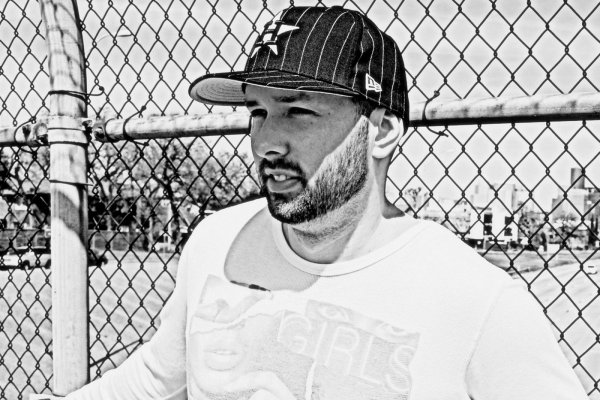Is It Still Possible To Make A Living in Music in 2017?
The opportunity to ditch your boring 9 to 5 and live a life less ordinary is one to which many of us aspire. Indeed, every year, thousands of people take that leap of faith and do it; emigrating to far off lands, or turning their hobby into paid employment - following their dreams. Some of those people are interested in making music their job and in today’s climate, that’s becoming increasingly difficult to do if you only have one string to your bow. So is it still possible to make a good living from music?
wIt starts off alright, the sensible ones have made provision of savings and are quite comfortable for a few months, even a year, but then it starts happening… The money dries up and rent goes unpaid and you start making those excuses to the bank, to friends, to everyone… “I’m having a few problems/I’m waiting on a contract. Don’t worry, I’m good for the money.” The stability of that 9 to 5 starts looking mighty good and many decide that ‘bored but stable’ is better than, you know, homeless and broke.
Many of the less traditional career paths - such as musician/DJ/producer - are fraught with financial hardship if done in isolation. It’s really only the top 1% of the 1% which can sustain a good lifestyle, however, for the vast majority, compromise and additional revenue streams are paramount for keeping their heads above water. Despite this, or maybe because of it, the UK performance rights company PRS for Music has seen a 93% increase in membership in the last 7 years - mainly, one would surmise, made up of clued up artists who understand that royalty payments aren’t made by the tooth fairy and that you actually need to actively look for them in many instances because, somewhere down the line, someone stuffed up cataloging your track.
Music generates around £4.4bn for the UK economy and about £2.5bn in export. Musicians, composers, songwriters and lyricists make up about 65% of all Music employment in the UK, a year on year rise that has been occurring since Government-funded records began in 2012. Of course, on balance, all these figures are slightly skewed in so much as the majority of the music industry works as part of the gig economy - freelance - and because of this, payments aren’t uniformly received as in a traditional 9 to 5 and aren’t stable enough to be recognised as your source of income when you try for a loan or even moving rented accommodation.
The compromise of having a ‘McJob’ on the side is not a new one, but now more than ever it’s a vital lifeline aiding freelancers and musicians to live that life less ordinary, which ironically, stops them being able to take certain opportunities meaning they only ever ‘just get by’. Inevitably, they develop a thicker skin and a healthy dose of cynicism towards life. “Simply no one would do it if they knew what was involved.” Tim Sheridan told me recently. “The goal is simply to make as much money as possible for the men at the top.”
He isn’t by any means alone in sharing this view, “I have worked in the music business for around 30 years, and in that time I’ve encountered quite a few people who don't think working in the music business is a real job at all!.” PR John Bourke said, “Music was always something I was very passionate about but at the same time I came from a more conventional work background first so, whilst it was something I was very heartfelt about, I still always believed in being professional in how I worked and treated people.”
Annoyingly, when you tell people you work in the music business, the first thing they do is glaze over imagining you at some all-night rave snorting overpriced cocaine from a large-breasted strippers tits. But the reality of the job is actually fairly mundane - you get up, you check your emails, you do some music… and yet that glamourized version of events appears to be the strongest image of what it is to be in the music business. And the ‘business’ of music has never been so diverse.
Take for instance today, as I woke up and checked my social media networks. I scrolled past a status from a friend lamenting his 10 years on Facebook and how, at university back then his job - Social Media Manager - hadn’t even been invented! I stopped to ponder this - Hadn’t even been invented… It is true that the advent of the digital age has unlocked many new ways for us to earn a living in the music industry, Social Media management being one small but vital cog.
There’s also an upturn in artist management, venue or event management, publishing (from individual companies to working at a performing rights organisation), bookers, music products (like amps and guitars or DJ equipment and recording software), public relations, marketing and record labels… so many slices, so little pie. And yet change is needed to sustain an ever larger workforce, but change is something which the music business finds hard to do.
“There are still those who struggle to let go and adapt, but in general, I fear the industry is still trying to form a business model around record labels distributing a product and maximising revenue by exploiting every single stream… or over exploiting the technology platforms which make it all possible.” Nolan Shadbolt, director at Evolved believes there is a different way of looking at the old models and all make a bit of money.
“15 years ago, the industry was entirely focused on physical product. The switch to downloads and more recently to streaming has fundamentally changed the business and it’s revenue structure. For me, the future is a question of value. How will future generations value music financially? How a record label adds value to an artist and how business models will need to adapt to be less focused on sales revenue. At Evolved, our mantra is ‘Data is the new revenue’.” - Nolan Shadbolt
He may very well be onto something, as UK Government figures show YouTube and Spotify accounted for nearly half (46%) of all music curation weekly in 2016. Interestingly, the main music target group - millennials - still listen to music without a paid subscription service believing the cost of the subscription was too much. Streaming services, and in particular, Spotify, are not without their critics. Thom York famously called it “…the last desperate fart of a dying corpse”.
However, if mainstream media reports are true, streaming in general is set to be the mainstay of music retail for the next few years at least, despite traditional retailers waxing lyrical about an upturn in sales of vinyl, which, on balance, is more of a levelling off and the artists themselves calling out streaming services as modern day highwaymen (still waiting for the Taylor Swift “Spotify done me wrong” album btw).
As Nolan’s comments pointed out earlier, data is the driver here. Spotify’s 24 million active users generate 600Gb of data per day. This all helps to streamline the services that they deliver to you via suggestions and aids them in predicting things like Grammy Awards winners for instance - apparently, they did pretty well. Big Data is big business and knowing how to use it properly will help those wishing to make a living from music is the future.
So in answer to my original question: Is it possible to make a living from music alone? I would say, yes. But you need a backup plan. Just as sports stars become coaches, managers and TV pundits so DJs and musicians need to find other avenues to keep the wolf from the door. The important thing is, the money is there, you just have to know how to get at it. Lots of things are happening behind the scenes both in the way royalties are sourced and the usefulness of correct metadata tagging, so this is far from over.
It’s very easy to become disillusioned and lose focus on your ultimate goal, but if I can leave you with one nugget of knowledge, it’s this. Whatever happens, whatever music the world gets to hear from you, make it the best music you can make. Because at the end of the day, it’s the value you place on your own craft that determines the value others place on it.




